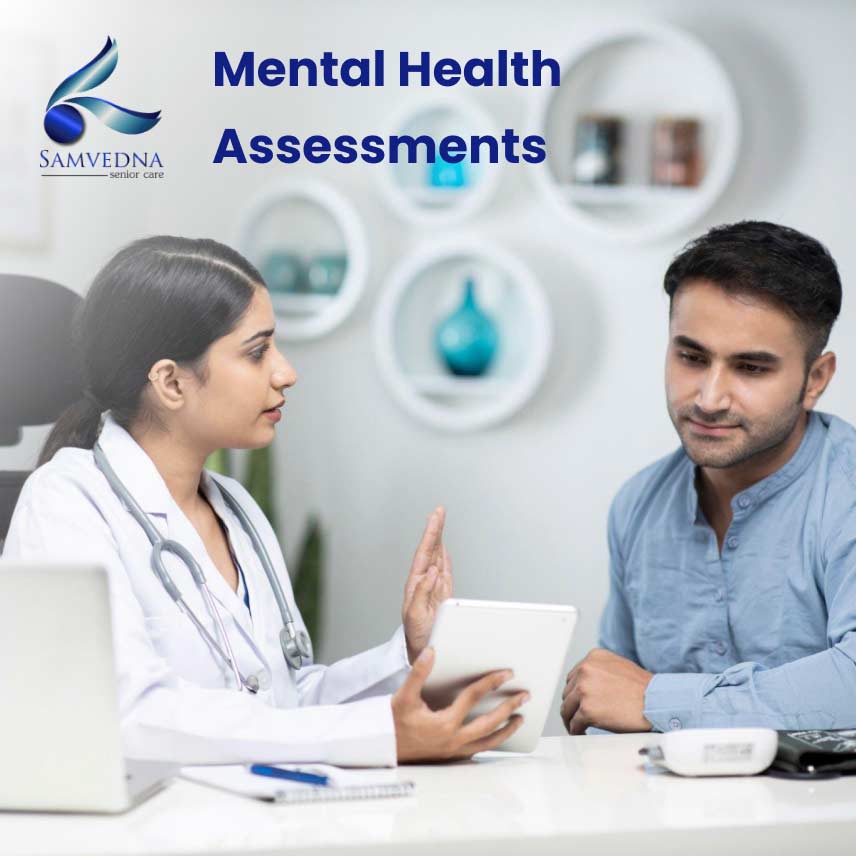Contact Us




In our day-to-day lives, we all come across stressors. Some are small and manageable, while others are bigger and cause significant distress. These stressors may lead to feelings of hopelessness and helplessness. There may be trouble concentrating, loss of desire or apathy, and changes in sleep or appetite. These symptoms can be so persistent that it might start affecting a person’s ability to maintain relationships, function in a social setting, perform at work and cause disruption in the overall mental well-being. If problems like these start to get in the way of your life, or that of a loved one, it’s important to take action.
A mental health assessment is used to find out whether the person is functioning at a healthy psychological, social, or mental level. Psychological assessment consists of a series of standardized tests and a clinical interview by a trained mental health professional. Standardized tests include more direct questions related to symptomatology to identify all the problem areas. Assessments are also conducted to screen for mental health disorders and can be done with any age or gender. Your primary physician may conduct a brief assessment during the routine check-up and if the symptoms are present, you will be referred to see a mental health professional who specialises in diagnosing and treating mental health problems.
Diagnosis of a mental health condition may be made by a psychiatrist, clinical psychologist or other mental health professional and the diagnosis is formed after a detailed clinical evaluation which incorporates the following:
Irregular Schedule
Every mental health condition has its own signs and symptoms but a few common signs which can affect emotion, feelings and behaviours are:
All of us experience these problems at some point in our lives and most of us are able to resolve them on our own. However, if these problems seem to increase in frequency and you feel that you are not able to resolve them, external help is needed. As we know a good quality of life is characterised by the feeling of being in control, a positive self-image, a sense of belongingness, engagement in enjoyable activities, and feelings of hope and optimism. But as the frequency of any mental illness symptoms increases person can experience feelings of distress, lack of control, low self-esteem and self-reliance, a sense of not being part of society and a sense of hopelessness and dejection can take over. As the intensity, duration and frequency of above mentioned symptoms increase it can affect the quality of life of an individual. Therefore, one needs to be mindful of when these problems go out of hand and seek mental illness diagnosis as early as possible. Always remember, timely support can help you feel better faster and improve your quality of life.
Samvedna Care provides highly specialized mental health screening and they have expert mental health therapists to help you deal with your problem.